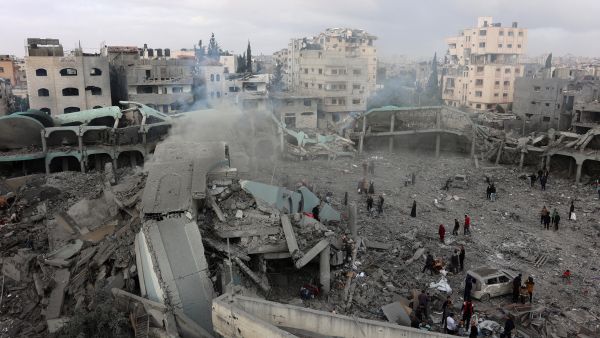ALBAWABA - Israel has recently intensified its military operations across multiple fronts in the Middle East, aiming to assert its strategic interests and counter perceived threats. In Gaza, the Israel Defense Forces (IDF) have resumed ground operations in the northern region and established a new "security corridor" between Rafah and Khan Younis.
These actions are intended to pressure Hamas into releasing Israeli hostages but have resulted in significant Palestinian casualties and the displacement of approximately 280,000 individuals since the collapse of a ceasefire on March 2.
In Syria, Israel conducted airstrikes on three air bases—T4, Palmyra, and Hama—that were reportedly under Turkish consideration for deployment under a proposed joint defense pact. These strikes signal escalating tensions between Israel and Turkey, with Israel viewing Turkey's growing influence and potential military installations in Syria as security threats.
Additionally, Israel's defense minister announced plans to maintain an "unlimited" military presence in southern Syria to ensure security and demilitarization. This move has drawn criticism, with some viewing it as an opportunistic land grab following the fall of Bashar al-Assad's regime.
In Lebanon, Israeli airstrikes targeted senior Hamas commanders, risking a breach of the fragile truce with Hezbollah. These actions reflect Israel's broader strategy to weaken Iran's influence in the region by targeting its allies and proxies.
Furthermore, reports indicate that the United States and Israel are considering coordinated strikes to neutralize Iran's nuclear capabilities. This potential escalation underscores the complex and volatile nature of regional dynamics.









![Poster of Layl series, which is taken from "Safirin Kizi" [The Ambassador's Daughter] Layl, Safirin Kizi](/sites/default/files/styles/d02_traditional/public/2025-12/6751946_1766213184.jpg?h=d18f17b4&itok=-D5UPNfC)
